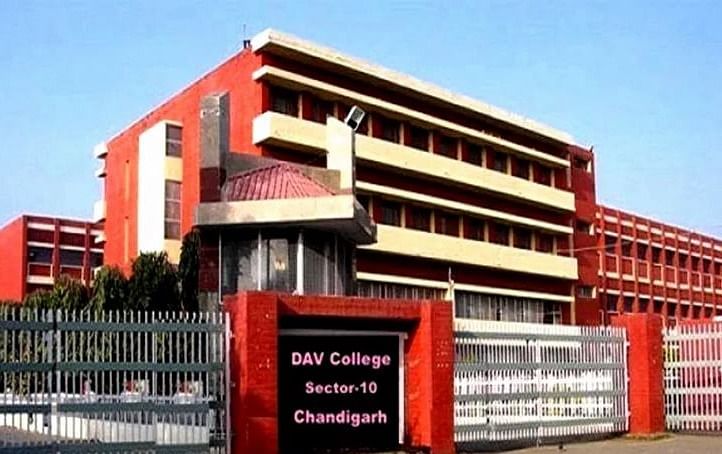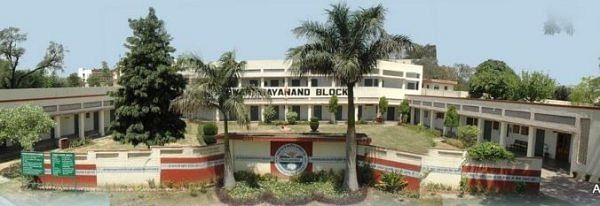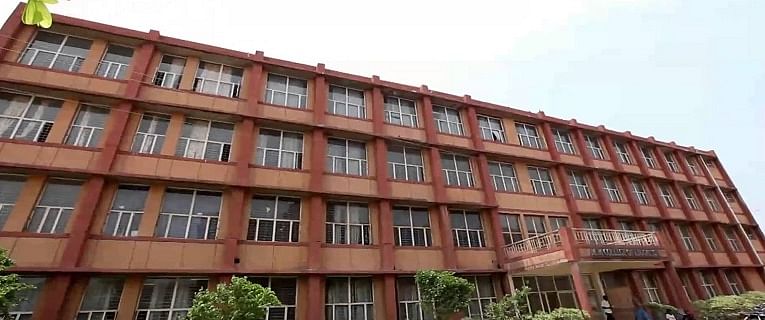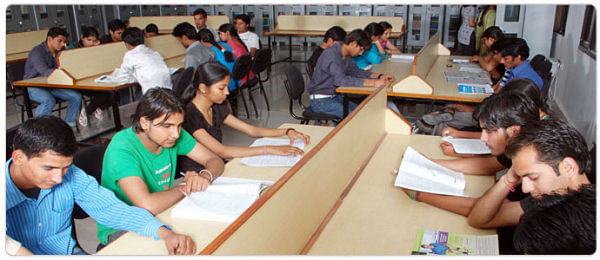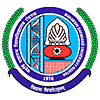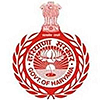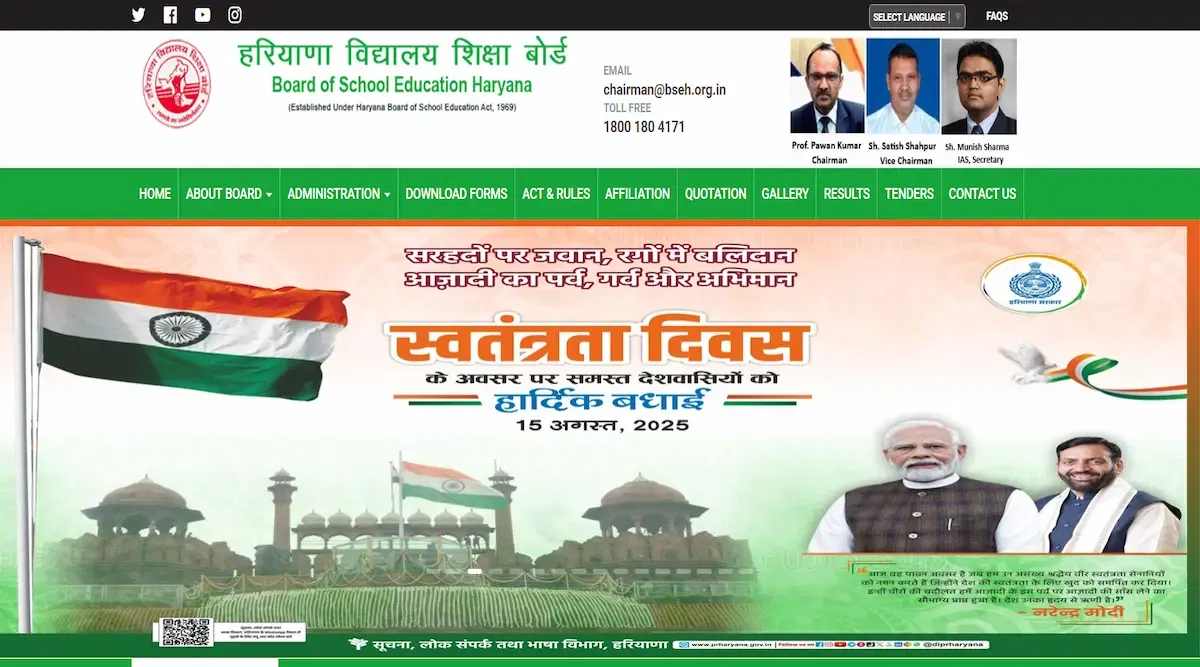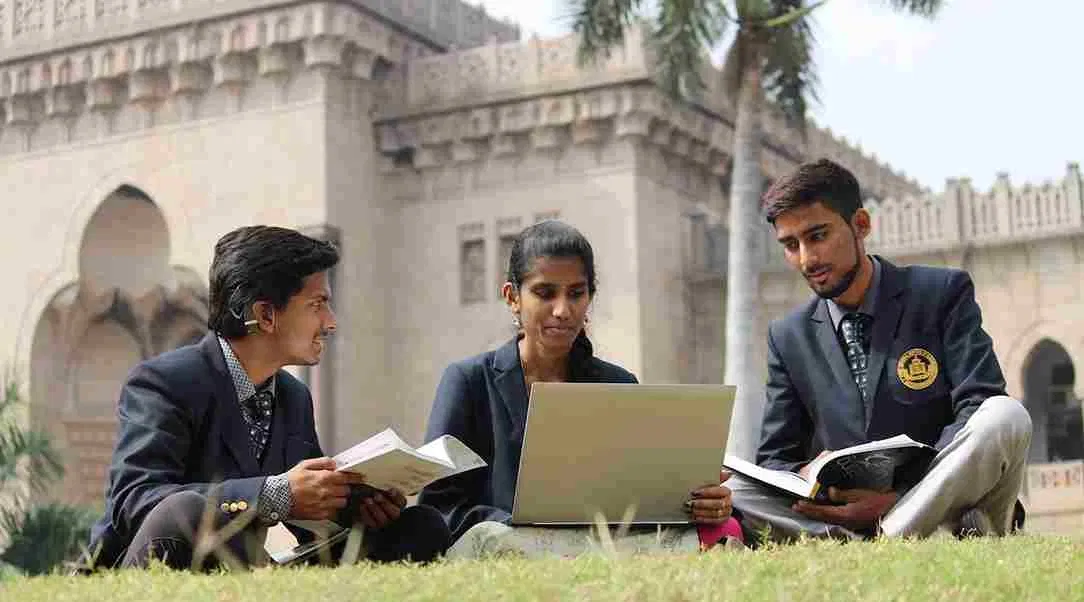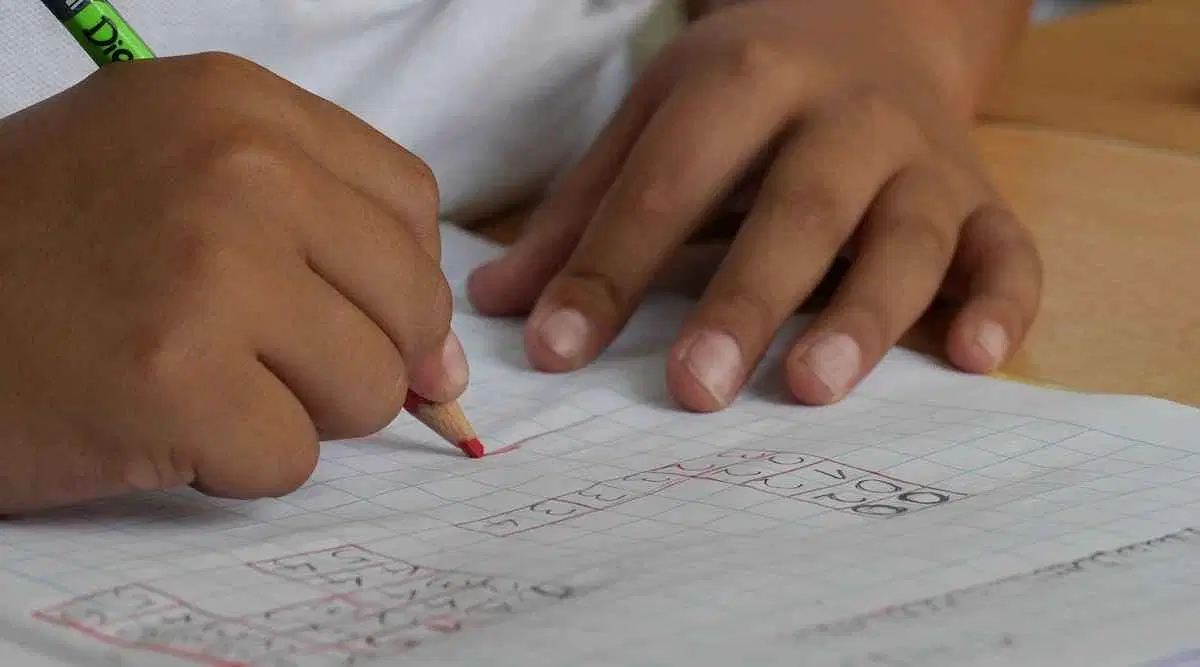HBSE Class 12 Political Science Latest Syllabus 2025-26: Download Latest and Revised HBSE Class 12th Political Science Syllabus PDF
Table of Contents
- HBSE Class 12th Political Science Syllabus
- HBSE Class 12th Political Science Syllabus: PDF Download
- How to Download HBSE Class 12th Political Science Syllabus
- Important Topics for HBSE Class 12th Political Science Syllabus
- Best Books for HBSE Class 12th Political Science Syllabus
- Preparation Tips for HBSE Class 12th Political Science Syllabus
The HBSE 12th Political Science Syllabus has been released by the Haryana Board of School Education on its official website for the academic session of 2025-26. There are a total of 15 chapters which are taken from 2 books of HBSE Class 12th Political Science. The marks distribution among these chapters varies depending on the context and question types.
The HBSE Class 12th Political Science syllabus is for 100 marks in total out of which 80 marks are given for theory and 20 marks for internal assessment. The duration of the political science exam is 3 hours or 180 minutes. The HBSE 12th syllabus 2026 covers the chapters and topics needed to study for the exam, while the HBSE 12th exam pattern 2026 familiarizes students with the marking scheme, sorts of questions asked in the exam, exam duration, and other details.
HBSE Class 12th Political Science Syllabus
HBSE Class 12th Political Science Syllabus contains 15 chapters from 2 different books and there are several topics included under each chapter. The syllabus for internal assessment includes the knowledge acquisition ability of students related to the subject and participation in class activities. The following table details HBSE Class 12th Political Science Syllabus:
|
Name of the Chapter |
Topics Included |
|
Nation Building Its Challenges |
Challenges for the new nation state, Partition: displacement and rehabilitation, Integration of princely states, Reorganisation of States, |
|
Era of One-Party Dominance |
Challenge of building democracy, Congress dominance in the first three general elections, different partities, emergence of opposition parties. |
|
Politics of Planned development |
Political contestation, Ideas of development, Planning, The early initiatives, The first five year plan, Rapid Industrialization. |
|
India’s External Relations |
International Context, The policy of Non-alignment, Peace and conflict with China, Wars and Peace with Pakistan, India’s Nuclear Policy, |
|
Challenges to and restoration of the congress system |
Challenge of Political Succession, Forth General Election (1967), Split in the congress, The 1971 election and restoration of congress. |
|
The Crisis of Constitutional Order |
Background to Emergency, Declaration of Emergency, Politics after Emergency, |
|
Regional Aspirations |
Region and the nation, Jammu and Kashmir, Punjab, The north-East, Accommodation and National Integration. |
|
Indian Politics: Recent Changes |
Context of the 1990s, Era of Coalitions, Political Rise of Other Backward Classes, Communalism, Secularism and Democracy, Emergence of a new Consensus, |
|
Collapse of Bipolarity |
What was the Soviet System?, Gorbachev and the disintegration, Why did the Soviet Union disintegrate, Consequences of Disintegration, Shock therapy in Post-communist Regimes, Consequences of Shock therapy, Tensions and conflicts, India and post-communist countries, |
|
Alternative center of Power |
European Union, ASEAN, The rise of Chinese economy, India- China Relations. |
|
Contemporary South Asia |
What is South Asia, The military and democracy in Pakistan, Democracy in Bangladesh, Monarchy and democracy in Nepal, Ethnic conflict and democracy in Bangladesh, India-Pakistan Conflicts, India and its other neighbors, Peace and cooperation, |
|
International Organisation |
Why International Organisations?, Evolution of the UN, Reform of the UN after the Cold War, Reform of structures and processes, Jurisdiction of the UN, India and the UN Reforms, The UN in a Unipolar World, |
|
Security in Contemporary World |
What is Security?, Traditional Notions: External and Internal, Traditional Security and cooperation, Non-Traditional Notions, New Sources of Threats, Cooperative Security, India’s Security Strategy |
|
Environment and Natural Resources |
Environmental concerns in Global Politics, The protection of global commons, common but differentiated responsibilities, common property resources, India’s stand on environmental issues, Environmental Movements: One or many?, Resource Geopolitics, The indigenous people and their rights. |
|
Globalization |
The concept of globalization, causes of globalization, political consequences, economic consequences, cultural consequences, India and Globalization, Resistance to globalization, India and resistance to globalization |
HBSE Class 12th Political Science Syllabus: PDF Download
Haryana Board of School Education has released HBSE Class 12th Political Science Syllabus on its official website. Candidates can click on the link given below to download HBSE Class 12th Political Science Syllabus PDF:
|
Particulars |
PDF Link |
|
HBSE Class 12th Political Science Syllabus PDF |
How to Download HBSE Class 12th Political Science Syllabus
Students can easily download HBSE Class 12th Political Science syllabus through the official website of Haryana Board of School Education. The following steps and instructions could be followed to download HBSE Class 12th Political Science Syllabus:
- Step 1: Go to the official website of Haryana Board of School Education which is bseh.org.in
- Step 2: Now click on the ‘Academic Session 2025-26 curriculum’ tab available on the left under Quick Links.
- Step 3: After clicking on the above link a new window opens now select class 12th from the given class list.
- Step 4: After selecting class 12th now click on 12th class syllabus 2025-26.
- Step 5: Now, select Political Science subject from subject list.
- Step 6: After selecting the subject. HBSE Class 12th Political science syllabus pdf opens and could be downloaded for further reference.
Important Topics for HBSE Class 12th Political Science Syllabus
Students must prepare for all the important topics of political science from both books to score high in HBSE Class 12th examinations. There has been no eliminated chapter or reduced topic by Haryana Board of School Education. The following table details important topics and chapters for HBSE Class 12th Political Science syllabus along with marks weightage:
|
Name of the Chapter |
Important Topics |
Marks Weightage |
|
Politics in India Since Independence |
||
|
Nation Building Its Challenges |
Challenges for the new nation state, Partition: displacement and rehabilitation, Integration of princely states, Reorganisation of States, |
06 |
|
Era of One-Party Dominance |
Challenge of building democracy, Congress dominance in the first three general elections, different partities, emergence of opposition parties. |
03 |
|
Politics of Planned development |
Political contestation, Ideas of development, Planning, The early initiatives, The first five year plan, Rapid Industrialization. |
04 |
|
India’s External Relations |
International Context, The policy of Non-alignment, Peace and conflict with China, Wars and Peace with Pakistan, India’s Nuclear Policy, |
07 |
|
Challenges to and restoration of the congress system |
Challenge of Political Succession, Forth General Election (1967), Split in the congress, The 1971 election and restoration of congress. |
04 |
|
The Crisis of Constitutional Order |
Background to Emergency, Declaration of Emergency, Politics after Emergency, |
05 |
|
Regional Aspirations |
Region and the nation, Jammu and Kashmir, Punjab, The north-East, Accommodation and National Integration. |
06 |
|
Indian Politics: Recent Changes |
Context of the 1990s, Era of Coalitions, Political Rise of Other Backward Classes, Communalism, Secularism and Democracy, Emergence of a new Consensus, |
05 |
|
Contemporary World Politics |
||
|
Collapse of Bipolarity |
What was the Soviet System?, Gorbachev and the disintegration, Why did the Soviet Union disintegrate, Consequences of Disintegration, Shock therapy in Post-communist Regimes, Consequences of Shock therapy, Tensions and conflicts, India and post-communist countries, |
05 |
|
Alternative center of Power |
European Union, ASEAN, The rise of Chinese economy, India- China Relations. |
05 |
|
Contemporary South Asia |
What is South Asia, The military and democracy in Pakistan, Democracy in Bangladesh, Monarchy and democracy in Nepal, Ethnic conflict and democracy in Bangladesh, India-Pakistan Conflicts, India and its other neighbors, Peace and cooperation, |
05 |
|
International Organisation |
Why International Organisations?, Evolution of the UN, Reform of the UN after the Cold War, Reform of structures and processes, Jurisdiction of the UN, India and the UN Reforms, The UN in a Unipolar World, |
07 |
|
Security in Contemporary World |
What is Security?, Traditional Notions: External and Internal, Traditional Security and cooperation, Non-Traditional Notions, New Sources of Threats, Cooperative Security, India’s Security Strategy |
04 |
|
Environment and Natural Resources |
Environmental concerns in Global Politics, The protection of global commons, common but differentiated responsibilities, common property resources, India’s stand on environmental issues, Environmental Movements: One or many?, Resource Geopolitics, The indigenous people and their rights. |
06 |
|
Globalization |
The concept of globalization, causes of globalization, political consequences, economic consequences, cultural consequences, India and Globalization, Resistance to globalization, India and resistance to globalization |
08 |
Best Books for HBSE Class 12th Political Science Syllabus
Preparation books for HBSE Class 12th political science syllabus help students to prepare effectively and score high in marks. HBSE Class 12th political science syllabus preparation books contain sample papers, explanation, practice questions, exam structure and more. Some of the best books for HBSE Class 12th Political Science Syllabus are given below:
- XamIdea Class 12th Political Science Book
- Gurukul by Oswal Class 12th last year 10 solved question papers Political Science
- All in One class 12th Political Science
- Mastermind Question bank class 12th Political Science
- Arihant Class 12th Political science chapter wise
Preparation Tips for HBSE Class 12th Political Science Syllabus
Preparation Tips and strategies help students to plan preparation wisely and effectively also it aids students to score higher in HBSE Class 12th Political science syllabus. Some of the tried and best preparation tips for HBSE Class 12th Political science syllabus are:
- Get well acknowledged with the exam structure, question types and marking scheme of political science class 12th HBSE.
- Start planning 2 to 3 months and prepare a timetable according to proper time division for each chapter.
- Have sufficient time for revision and solving HBSE 12th previous year question paper.
- Make short notes and flashcards for important dates to remember.
- Make mind maps or timelines for important HBSE Class 12th Political science events.
- Take help from preparation books for better understanding of scenarios and events.
- Try to get deep knowledge about different political parties, international organizations and important full forms.
- Take small breaks while studying and avoid late night study exhaustion.
- Try deep breathing and relax before giving the examination.


